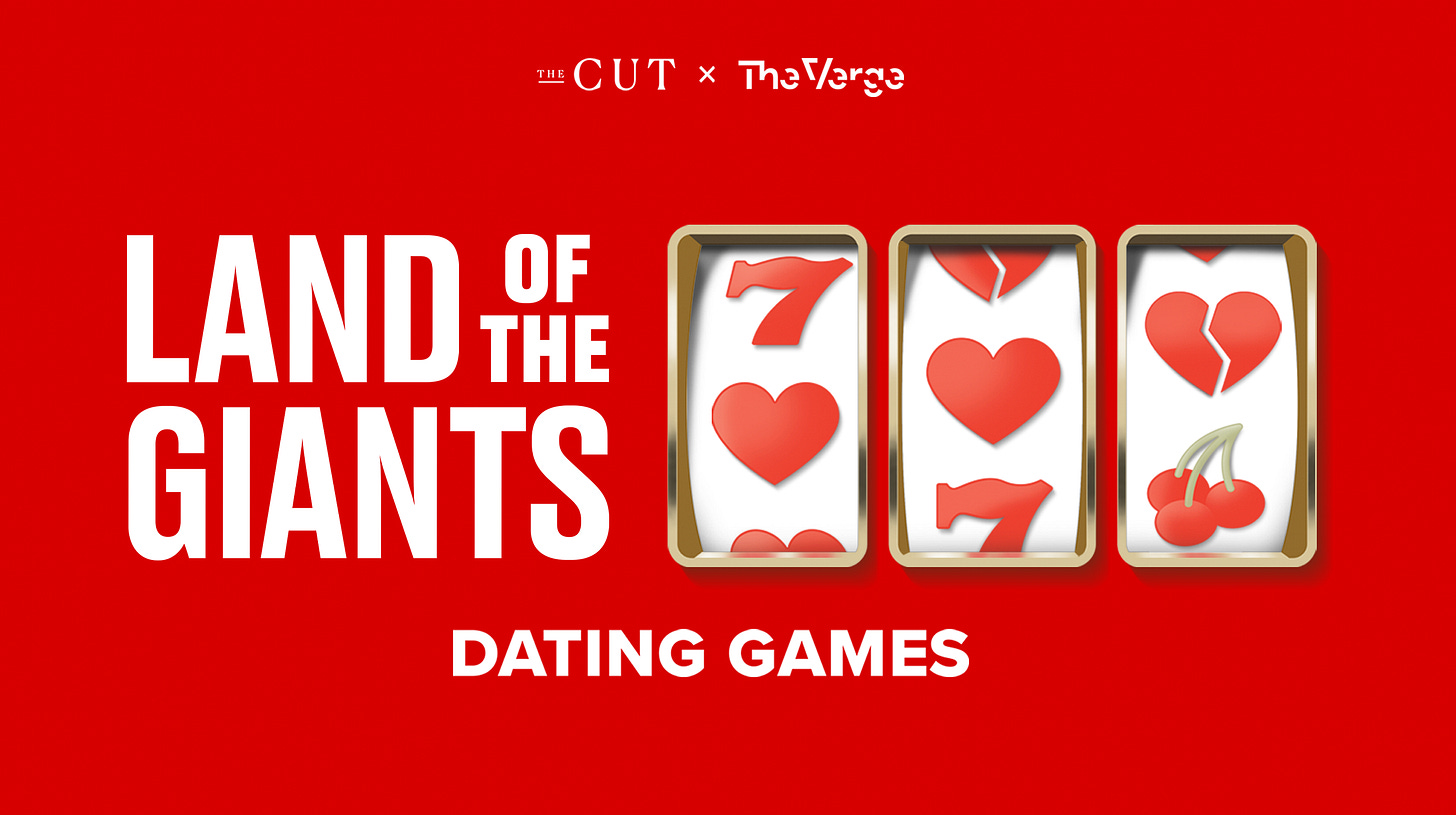Perverse Incentives
If Dating is a Numbers Game, the House Always Wins
Used to be, “courting distance” was how far a man could comfortably ride a horse, spend a little time visiting, and return home all in one day. It was about 12 miles, and boy howdy did that limit the dating pool — not to mention the gene pool. It made life pretty easy for matchmakers, though. Today, courting distance is throw-a-dart-at-the-globe… but are we better off with this paradox of choice? Who bothers to invest in a budding relationship when there’s always another one where that came from, and our electronic matchmakers remind us of that every day. “There’s plenty of fish in the sea,” say Tinder and Bumble and Hinge and, duh, Plenty of Fish.
But there’s a catch. It is not in the best interest of these electronic marvels of matchmaking to actually match you with anyone. As much as they claim to love love and want nothing more than to find you the love you seek, there is ample evidence that they are actually using their advanced algorithms to keep you single. After all, as soon as you find your true love, you will stop using their services. The apps cannot actually give you the very thing they are selling.
I believe economists call it a “perverse incentive.” I call it bullshit.
“People forget it’s an industry,” says tech reporter Lakshmi Rengarajan. “They know who’s behind Netflix or Amazon or Facebook, but they have no idea who’s behind Match.” Which, by the way, also owns Tinder, Hinge, OkCupid, The League, Plenty of Fish, and whatever it is you’re surreptitiously swiping as you skim this essay. (Spoiler alert: It’s Barry Diller. The Match Group is the brainchild of the octogenarian media mogul who also invented the made-for-TV movie and launched the Fox network.)
Rengarajan and Sangeeta Singh Kurtz are co-hosts of Dating Games, the latest season from the techie podcast Land of the Giants. It’s a deep dive into the genesis, the business and the general dystopia of dating apps.
And “Games” in an appropriate handle, as dating apps were designed from the gate to resemble casino games, and with the same goal: They want to keep you there as long as possible to extract as much money from you as possible. Only instead of bribing you with free cocktail service and seafood buffets, they tempt you with the promise of everlasting love.
Of course, these slot machines can’t actually give you everlasting love, because that would cause you to immediately exit the casino. So they do everything in their algorithmic power to serve you Mr. or Ms. Not-Quite-Right, to persuade you that Mr. or Ms. Right is behind the next curtain. Just keep swiping!
Here’s the thing: Mr. or Ms. Right could well be behind the curtain somewhere. Probably is. In 2023, just about every unpartnered (and plenty of partnered) people are on the apps. But the app has zero incentive to open the curtain. Its goal is to keep zapping you with the dopamine hit of expectation, over and over and over again. Because mammals will chase dopamine hits until they die. Ask any lab rat.
The apps are programmed to give us almost what we want, but not quite. They are designed to tantalize you. It is frustration on a mythic scale. Literally. Where do you think the word “tantalize” comes from? The current psych jargon for this phenomenon is the “ludic loop,” although the idea of “intermittent reward” has been around since before BF Skinner did his experiments with the actual lever-pressing lab rats.
As media analyst Jon Favreau put it, “You may go into the dating app thinking ‘I want to find someone,’ but the act of being on the app and swiping itself becomes an entertainment experience.” The average Bumble user spends 90 minutes a day on the app. Astonishing. I would shoot myself after spending 90 minutes on Bumble, period - although I do find it entertaining. Look at all the pictures of men holding up a fish!
I don’t get it. Do they think I will pick the man with the biggest fish? Is this a dick metaphor, or do I look hungry?




The idea that time spent on these apps is a well crafted attempt to NOT give me what I want…Is pure evil genius. I’m so sensible in almost every other area of life.